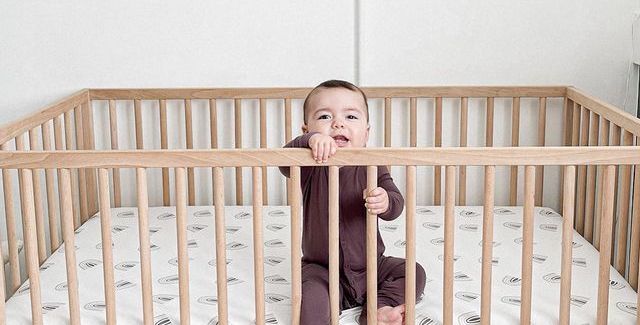Get a FREE custom sleep and feeding schedule
Our pediatric sleep experts at Nanit Lab deliver a personalized schedule based on your baby’s age, feeding method, current rest patterns, and more. Plus, you’ll receive tips on upcoming milestones and features to help you with each new stage!
15 Month Old Nap Schedule:
Is it already time for 1 nap a day? Where has the time gone? At this age, your baby will probably nap for around 2 hours during the day. This may still be a transitional time where they might have some two nap days and some one nap days. Once they’ve transitioned to one nap a day, remember to give them the quiet space they need to relax and ease into this new routine for their days. Though they may not want to nap, they’ll appreciate the rest that their bodies will get. You’re welcome to lay your baby down 30 minutes earlier for their afternoon nap, which might help them get through the day for the first week or two during this change in their routine.
15 Month Old Feeding Schedule:
When it comes to food, solids are going to be your baby’s new best friend. They can still be drinking cow’s milk, but they shouldn’t be drinking more than 20 ounces a day. If they’re drinking more than that, take it as a sign that they’re not eating enough solid foods, which is probably why they’re still hungry. Solid foods will now be the main source of nutrition. Your little one should be fairly used to 3 meals a day at this point, and you’ll learn more and more every day about the different flavors and textures they enjoy! This is a fun time to expand your baby’s taste palate, and guide them through an exploration of new textures and flavors.
How Long Should A 15 Month Sleep?
During this time, your baby is used to a sleeping around 11-12 hours at night, and around 2 hours during the day. Your little one may start to develop nightmares between 18 and 23 months, or even show signs of being afraid of the dark. An easy solve here is to buy a nightlight to keep them feeling safe and comfortable.
We recommend holding off transitioning your baby to a toddler bed until at least 24 months. The crib is your baby’s sleep sanctuary. It’s where they feel safe, where they’re not necessarily bothered, and allows for a dynamic relationship between family and baby.
15 Month Old Schedule
|
Wake and Milk Feed 6:30 AM |
You might choose to combine milk and breakfast at this age, especially if the little one is included in your family's breakfast. |
|
Breakfast 7:30 AM |
Another opportunity to get creative with solid foods! If you need ideas: oatmeal, avocado on toast fingers, toast fingers with butter, roasted cherry tomatoes, scrambled eggs or whole wheat pancakes cooked with blueberries — options are limitless, just pay attention to what your baby reacts well to! |
|
Optional Snack (Can be small milk feed) 9:30 AM |
How does a small snack sound? Probably great for your baby! Just don't let it interfere with their lunch :) |
|
Lunch 11:00 AM |
Your baby is comfortable with a solid lunch at this age, and a variety of flavors and textures. They'll be feeding themself more and more, just note that this meal might be slightly earlier now that they've transitioned to one nap. Keep the morning snack light so as not to interfere with this meal. |
|
Nap time 11:30 AM - 2:30 PM |
Your baby should have energy until at least this time, but ideally 30 minutes later. This nap shouldn't go for more than 3 hours. |
|
Milk Feed 2:30 PM |
Someone is awake and ready to be fed milk! |
|
Optional Snack 4:00 PM |
A baby-sized snack for your baby might be good to help them last to dinner. Same as earlier, keep it light so as to not interfere with dinner. Foods like baby carrots, apples with peanut/almond butter, a handful of berries, a clementine, a mini whole wheat bagel with peanut/almond butter, or a hard boiled egg, are all great options. You'll probably be out and about, so choose something portable and easy on the go. |
|
Dinner 5:00 PM |
So many delicious flavors and textures for your little one to look forward to in this solid dinner! Encourage them to self-feed if that's something they seem comfortable doing. |
|
Bath 5:45 PM |
Splish-splash! It's time for a bath! |
|
Bottle and Book 6:15 PM |
Solid dinners may leave your baby feeling too full for a bottle before bed. |
|
Bedtime 6:30 PM |
Time for bed. Sweet Dreams! |








































